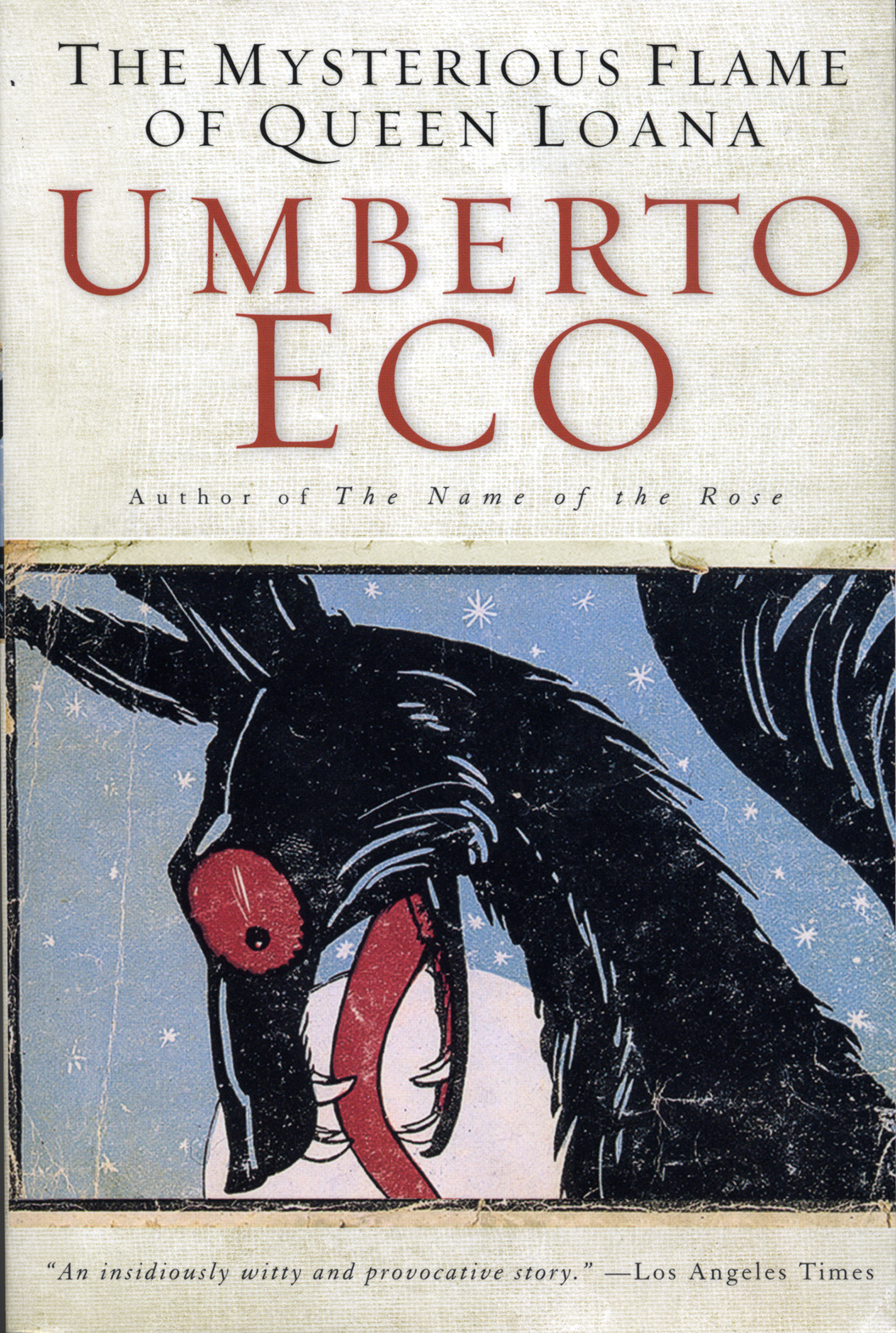FAYETTEVILLE, Ark. — Geoffrey Brock’s award-winning translation of Umberto Eco’s The Mysterious Flame of Queen Loana offers readers a literary experience as entertaining in English as it is in the original Italian.
Brock, an assistant professor of English at the University of Arkansas, was honored by the American Translators Association at its annual convention with the 2006 Lewis Galantière Award for his translation from Italian of Eco’s novel. The award is given once every two years to the best book-length literary translation from any language, except German, into English.
The main character in Queen Loana is an Italian bibliophile named Yambo who bears some resemblance to Eco. When the story begins, he has suffered a stroke and is awaking with a type of amnesia that has wiped out his personal memories and left only what he has learned from books. To recover his personal past, he moves into his family’s summer home with its attic filled with everything from his childhood — toys, books, school papers.
“Yambo’s entire childhood is present in objects and in old magazines and newspapers,” Brock said. “As he goes back through all these materials, it becomes a history of a generation and a history of Italian culture in the ’30s and ’40s during the rise of fascism.”
Many of the cultural allusions from the bibliophile’s attic are familiar to Italian readers and make the original humorous and entertaining. Working closely with Eco, Brock’s task was to reproduce that reading experience for English speakers. To do this, he had to replace some of Eco’s allusions to literary and popular culture with different allusions that would be more accessible to Anglophone readers-but still plausibly the product of Yambo’s mind. In the case of Queen Loana, Brock said, “word-by-word fidelity would sometimes have been an infidelity.”
|
Geoffrey Brock |
“It follows,” he wrote, “that a faithful translation ought to try to recreate them for English readers, too, or at least to mimic their flavors and effects, in order that the translation function as an analogous work of art in its own right.”
This approach to translation demands more subtlety than a simple literal translation of sentences from one language to another.
“If I had just literally translated it into English, some of the passages might have become obscure or dull and as a result might have failed to achieve whatever humorous or entertaining effect Eco had intended. But Eco is an entertainer and wants his novels to be, among other things, entertaining,” Brock said.
Brock’s re-creative translation offers a rich experience of Eco’s novel with allusions that sometimes spin off the page in rollicking passages melding “a kiss is just a kiss” with a jumbled quote from JFK and bits of Dante with nursery rhymes.
One passage was quoted from an old mystery novel, and Brock had fun switching gears to give the paragraph “that noir feel.” Even when translating a passage about fog from Bleak House, Brock could not simply lift Dickens’ original English since Eco had mixed in a bit of “The Little Match Girl” with the Bleak House segment.
“Every quoted passage had to have its own style and voice in English distinct from the main body of the novel,” Brock said. “That was one of the challenges and pleasures of this translation.”
Few of the many reviews of The Mysterious Flame of Queen Loana commented on the translation. As Patricia Robertson noted in her review in Books in Canada, “Publishers regularly neglect to acknowledge translators, who rarely rate a biographical note.” She praised Brock’s translation as “a wonderful job of capturing the book’s simultaneously erudite and comic tone.” Another reviewer, David Kirby in the Atlanta Journal-Constitution, wrote, “The Mysterious Flame of Queen Loana is a special pleasure thanks in part to Geoffrey Brock’s supple translation of the original.”
Brock also received another translation award in 2006, the John Frederick Nims Memorial Prize from Poetry magazine, which he received for his translation of a poem by Giovanni Pascoli that he first discovered thanks to a quotation from it in the Eco novel.
Brock teaches creative writing and translation in the J. William Fulbright College of Arts and Sciences at the University of Arkansas. He was a Wallace Stegner Fellow in Poetry from 2002 to 2004. In addition to translating Eco’s novel, he has translated books by Cesare Pavese and Roberto Calasso. His latest translation is Skylark Farm, a novel about the Armenian genocide by Antonia Arslan.
His current projects include a bilingual anthology of 20th century Italian poetry, supported by a Guggenheim fellowship, and a second collection of his own poems, tentatively called Voices Bright Flags.
Contacts
,

